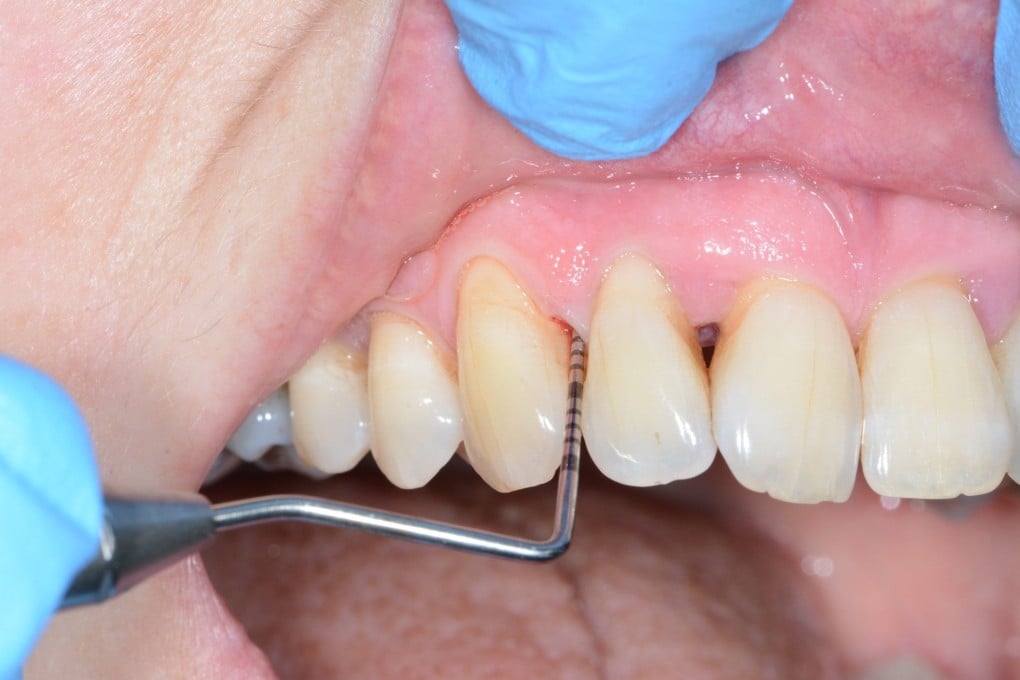How dental health may impact brain health; experts describe how poor oral hygiene is linked to higher risk of developing dementia
- A build-up of plaque and tartar on teeth creates a breeding ground for bacteria that can lead to gum disease – and inflammation that can affect the brain
- People with poor dental hygiene are 21 per cent more likely to develop Alzheimer’s disease, a recent study suggests, so regular flossing and brushing are vital

In a photograph of my mother on my desk, she is smiling broadly, an even, white-toothed smile. It was taken 18 months before she died. Her dementia was evident everywhere in our lives by then – but not in that picture: from the photo you’d never guess. She looks self-possessed and whole. In fact, she looks like a commercial for geriatric dental care with that wide, white smile.
I wish she’d always had teeth like that; she used to be very conscious of her smile when she had her own teeth. Two years before the photo in question, she’d had her top teeth removed, all of them. They were loose and discoloured. Her “falsies” transformed her face.
What I never imagined was that those teeth might have been another marker, another risk factor, for the dementia later.

Nicola West is a professor of periodontology and head of the Clinical Trials Unit at the Bristol Dental School at the UK’s University of Bristol. Her team’s recent MySmile study into this connection was prompted when links between Alzheimer’s disease and gum disease began to stack up.